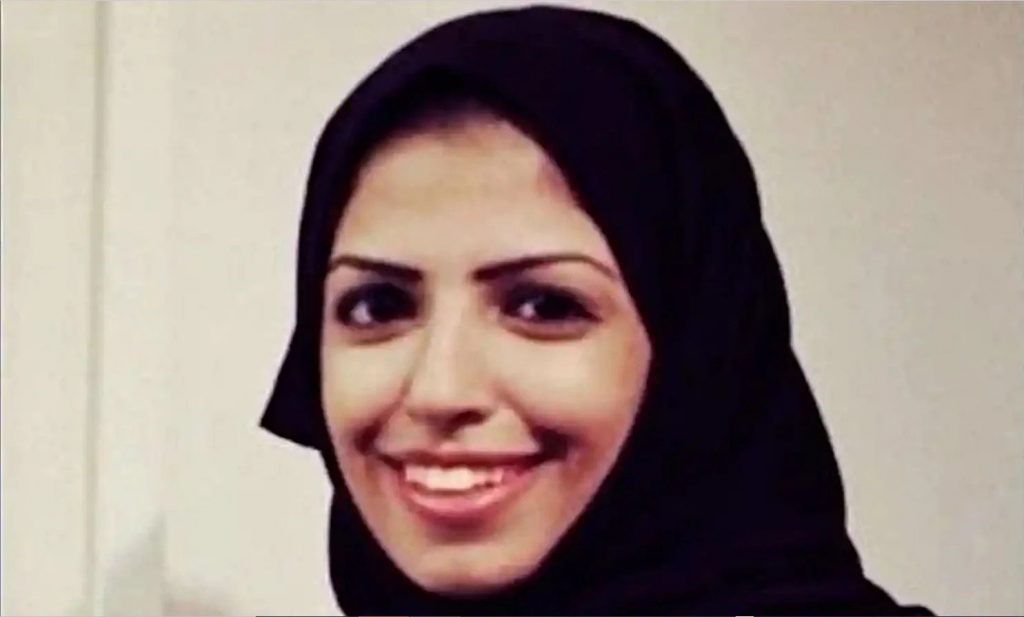A news from Saudi Arabia is highly disappointing. 34-year-old female PhD student of dentistry, Salma al-Shehab has been made to face consequences at the hands of the repressive regime of her country for rooting for women’s rights. Her ‘offence’ is that she re-tweeted tweets by activists clamouring for justice for fellow Saudi women incarcerated for protesting against curtailment of women’s rights such as driving cars. Riyadh’s Specialized Criminal Court (SCC) has sentenced Al-Shehab to 34 years in jail, and imposed a further 34-year travel ban. The sentence is considered harsh even by Saudi standards.
The PhD student, enrolled in a UK university, was detained during a visit to her home country in December 2020. She has now been found guilty of “assisting those who seek to cause public unrest and destabilize civil and national security by following their Twitter accounts,” according to the court papers. Mother of two young boys, Al-Shehab is shell shocked by the verdict as she, in fact, appealed against a much shorter sentence of imprisonment for six years for the charge earlier. She was neither particularly outspoken in her criticism of the regime nor did she try to reach a wide audience. She has only a couple of thousand Twitter followers. During her two years abroad, she had shared and liked social media posts that called for the release of the then detained human rights activist Loujain al-Hathloul and supported calls for gender equality in Saudi Arabia. There is no doubt that the whole inquisition is the handiwork of the de facto ruler, Crown Prince Mohammad bin Salman (MBS). The judges of the SCC are handpicked by him. It is he who had faced international ostracism for the heinous murder of Saudi journalist Jamal Khashoggi.
By inflicting the harshest punishment on Al-Shehab, the Saudi regime is believed to be sending out loud and clear messages to both its critics – Saudi Shiites inside the country as also Iran, which is considered Saudi Arabia’s arch enemy. Al-Shehab belongs to the Shia community. The persecution of Shias by the Saudi regime follows the pattern of authoritarian rulers around the world claiming to be advocates of the majority religious group in their respective countries. This could be considered a provocation to Iran, which is mostly Shiite. The Shia minority in Saudi Arabia has been the victim of discrimination and marginalisation for decades and is often used as a political scapegoat to promote Saudi nationalism.
The timing of the verdict on Al-Shehab is intriguing. It has come shortly after Saudi Arabia returned into the global fold after four years of being widely shunned following the murder of Khashoggi. Ironically, the Crown Prince has been the main force behind the kingdom’s modernisation programme – Vision 2030 -which includes more rights for women, opening up the country for tourism and diversifying from oil. In the same breath, he has assiduously created the image of being a man with iron fists by adopting draconian laws and setting up agencies that are nothing but instruments of torture and violation of human rights ahead of legal trials.
The international oil and gas crisis following the Russian invasion of Ukraine has opened a window of opportunity for the Crown Prince to project his country as a global fuel provider thereby getting away with persecuting his enemies at home. He has resumed travel and has started receiving foreign heads of state, including US President Joe Biden and European leaders at Riyadh.
The world seems to have very little choice in protecting freedom of speech. It has to decide whether it will trade freedom of speech and women’s rights in return for Saudi oil and petro-dollars. In the process, it has to legitimise the Crown Prince’s atrocities on his own people or else suffer consequences of fuel shortages.
